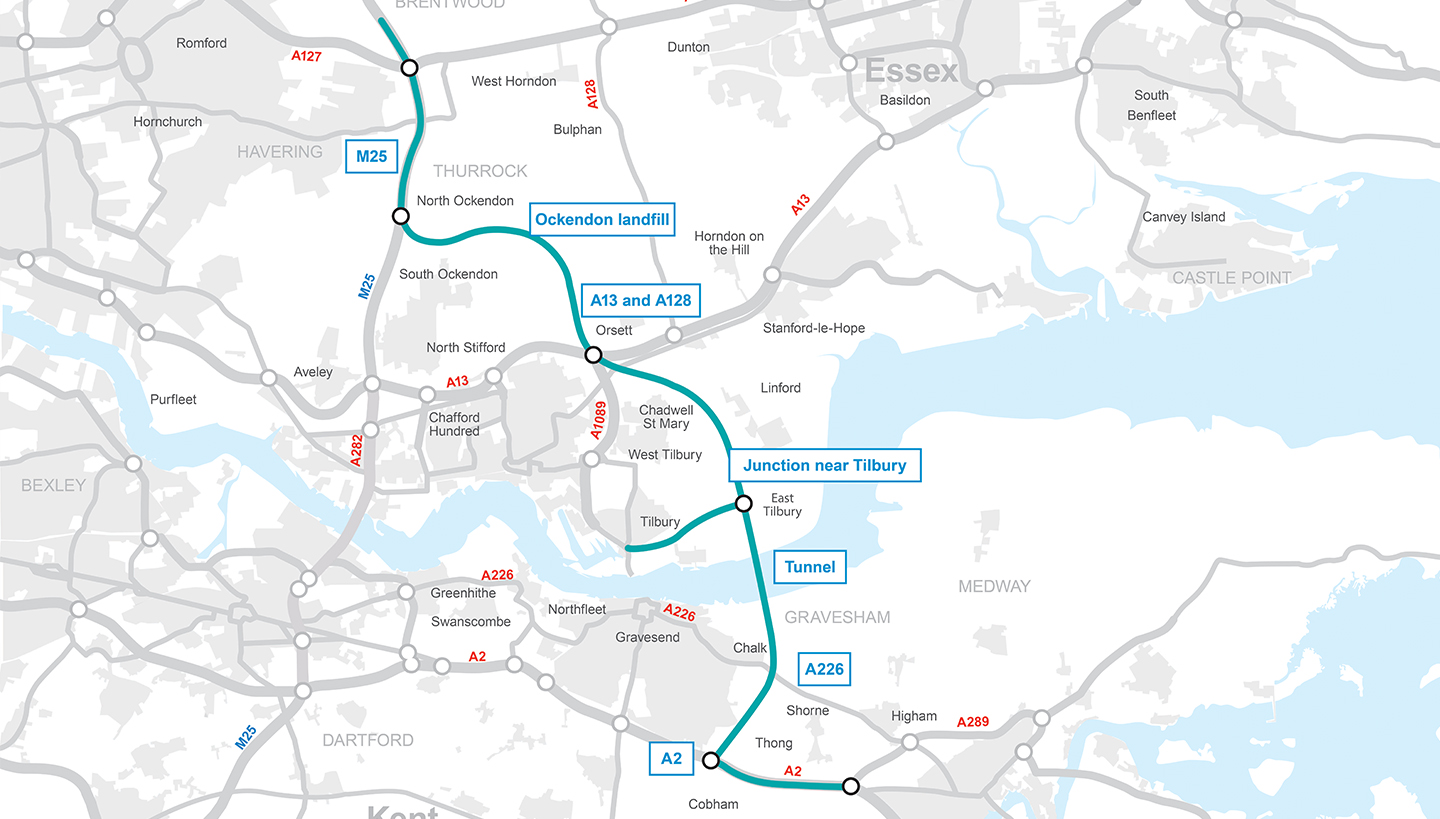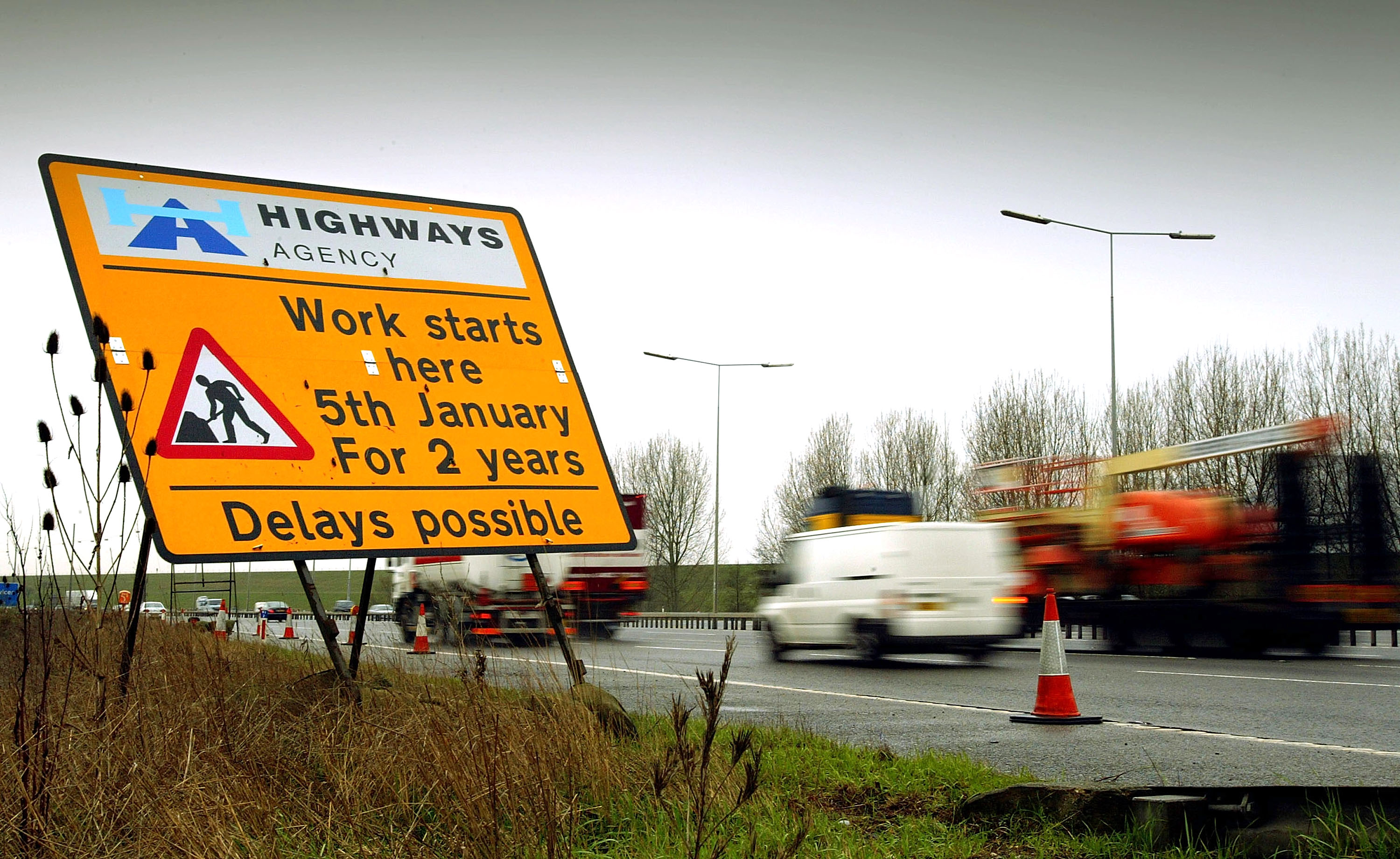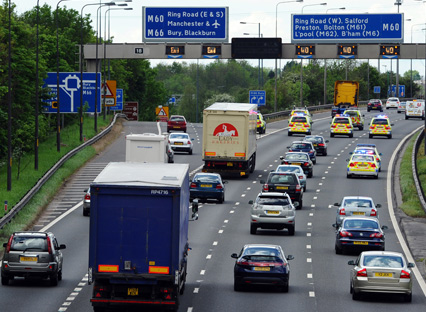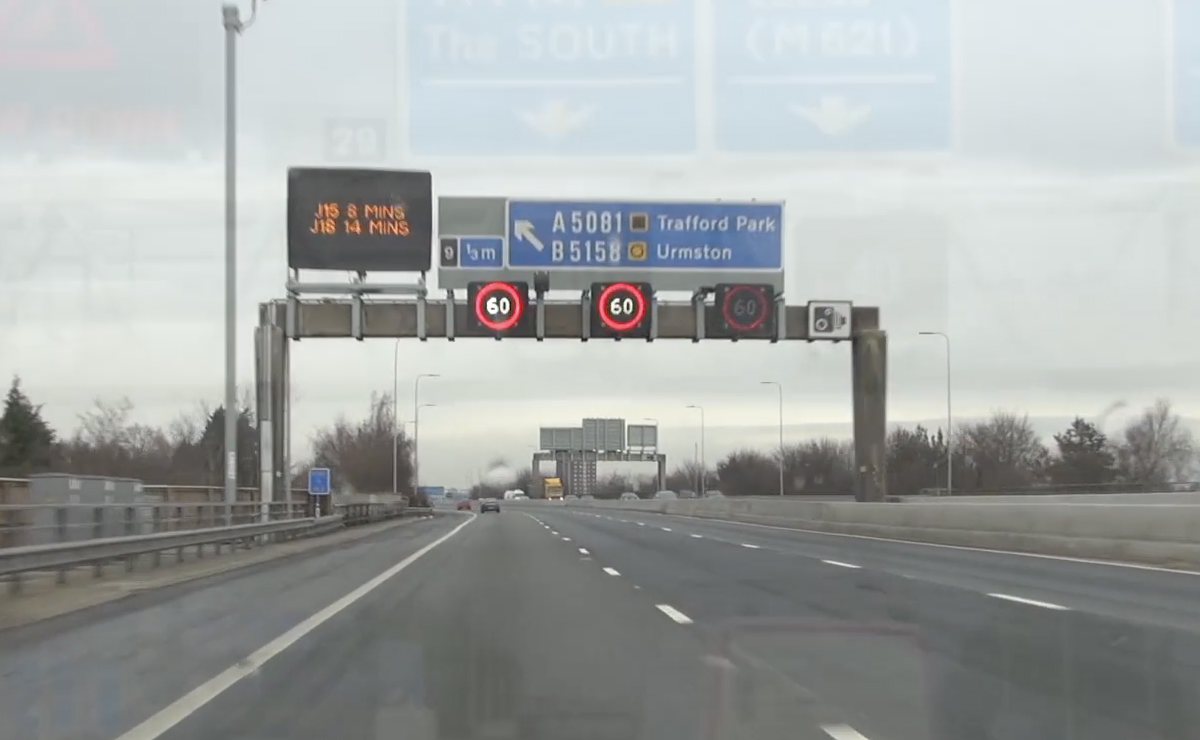Lower Thames Crossing: everything you need to know
Controversial £6bn scheme out to consultation after being approved by Transport Secretary Chris Grayling

A free daily email with the biggest news stories of the day – and the best features from TheWeek.com
You are now subscribed
Your newsletter sign-up was successful
A planned major new road linking the counties of Kent and Essex will almost double capacity across the River Thames, Highways England has announced.
The three-lane Lower Thames Crossing (LTC) has been billed as the “UK’s most ambitious road scheme since the M25”, and will include the kingdom’s longest road tunnel, says the London Evening Standard.
Transport Secretary Chris Grayling says the carriageway will “unlock productivity across the UK”. However, environmental activists fear that the scheme will considerably increase air pollution.
The Week
Escape your echo chamber. Get the facts behind the news, plus analysis from multiple perspectives.

Sign up for The Week's Free Newsletters
From our morning news briefing to a weekly Good News Newsletter, get the best of The Week delivered directly to your inbox.
From our morning news briefing to a weekly Good News Newsletter, get the best of The Week delivered directly to your inbox.
The revamped project will cost a total of around £6bn, with taxpayers footing the bill, and has been put out to fresh consultation, reports The Guardian.
So exactly what is planned and when will the road open?
Where will the Lower Thames Crossing be built?
The 14.5-mile (23km) three-lane dual carriageway will connect the M2 near Rochester and the M25 in Essex between North and South Ockendon, and will include a 2.4-mile (3.8km) tunnel between Gravesend and Tilbury - the longest road tunnel in the UK.
A free daily email with the biggest news stories of the day – and the best features from TheWeek.com
This will result in a 90% increase in capacity for traffic crossing the Thames east of London, according to Highways England. By contrast, a previous two-lane plan was expected to increase traffic capacity by only 60% to 70%, says the Standard.
When will it be completed?
If plans are approved, the construction of the road is scheduled for completion in 2027.
How much will motorists pay to use the road?
Tim Jones, project director for the LTC, told the BBC that there will be a charge for using the crossing.
“We are going to ask people’s view on a variable charge because we think that may be more suitable,” he said. “It’s not a toll and it will continue. A toll is normally to pay for a piece of infrastructure - this will be a user charge.”
The Sun reports that the route could almost “halve the morning peak average journey times between M25 junctions 1b and 31, from nine minutes to just five”.
What are the pros and cons?
Grayling says the crossing will “help transform journeys, create new business opportunities in Kent and Essex, and unlock productivity across the UK... and cut congestion at the Dartford Crossing and improve connectivity from our industrial heartland to our ports in the Southeast”.
The scheme has been welcomed by the Freight Transport Association, which said that congestion at the current crossing at Dartford was “unbearably high”.
But the Campaign for Better Transport remains unconvinced, arguing: “We think a better and less expensive solution would be to expand port capacity north of the Thames, improve freight and passenger rail links across the river, and use distance-based lorry road user charging.”
Meanwhile, Friends of the Earth campaigner Jenny Bates said: “It’s astonishing that in the week the UN is warning of the need for urgent action to avoid catastrophic climate change, the UK government is boasting about building more roads.
“This development will only encourage more cars, vans, lorries and traffic, pumping more air pollution and climate-damaging emissions into our environment.”
-
 How the FCC’s ‘equal time’ rule works
How the FCC’s ‘equal time’ rule worksIn the Spotlight The law is at the heart of the Colbert-CBS conflict
-
 What is the endgame in the DHS shutdown?
What is the endgame in the DHS shutdown?Today’s Big Question Democrats want to rein in ICE’s immigration crackdown
-
 ‘Poor time management isn’t just an inconvenience’
‘Poor time management isn’t just an inconvenience’Instant Opinion Opinion, comment and editorials of the day
-
 Conservative Party Conference: £25bn set aside for major road upgrades
Conservative Party Conference: £25bn set aside for major road upgradesIn Depth Funds from taxpayer and borrowing will be used to improve 14 English routes
-
 Are the UK’s road signs dangerous?
Are the UK’s road signs dangerous?In Depth Drivers tell transport watchdog that obscured junction numbers can lead to hazardous motorway incidents
-
 How safe are smart motorways?
How safe are smart motorways?In Depth Motorways without hard shoulders could soon be a thing of the past, according to the PM-in-waiting